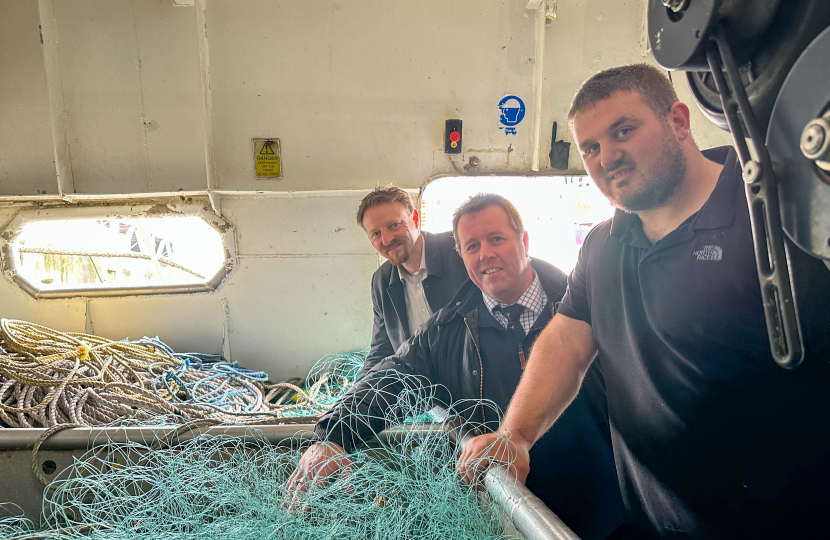
The Cornish Fish Producers Organisation (CFPO) launched its paper ‘The True Value of Seafood to Cornwall’ report. Fishing has defined coastal communities in Cornwall and Scilly with towns and villages such as Penberth, Porthleven, Coverack, Cadgwith, St Ives, Newlyn and quite a few more shaped by generations of fishermen. The industry, as far as UK productivity is concerned, is small but its reach and significance is much greater. The ‘True Value of Seafood to Cornwall’ sets out how many jobs are undertaken in the catching part of the industry and how many jobs this supports in processing, retail, services and hospitality.
In fact, fishing in Cornwall and Scilly contributes £174m to the local economy and provides 8,000 jobs. Government recognises this and, during my time, fishing has seen more senior ministerial visits than anything else. David Cameron as PM visited Newlyn when chewing over what should be done to reduce the number of dead fish returned to the sea due to quota restrictions and other rules faced by fishermen. George Osborne as Chancellor visited Porthleven to understand the value of fish to the hospitality sector. I’ve welcomed 3 separate Food and Farming Secretary's of State on more than one occasion, hosted repeated Fishing Minister visits and fishing has been debated in the Commons far more often than other key aspects of the UK’s economy.
In recent weeks Cornwall’s MPs have wrestled along with the CFPO and Government officials and Minister over the advice by scientists to have a zero catch for pollock. Pollock is an important catch for the Cornish fleet, particularly inshore fishermen, and now with this almost complete ban in place we continue to wrestle with how we support those in the fleet who rely heavily on this catch and how we can improve the evidence to understand whether pollock fishing can be permitted next year. Another issue we have wrestled with is the need to ensure safety at sea without grounding the fleet due to disproportionate requirements. The Maritime and Coastguard Agency (MCA) has determined that fishermen pass medical checks that exceed the standard demanded of HGV drivers and people working at height. This presents a real and unfair challenge to our inshore fishing fleet in particular and, with months of effort to get the MCA to apply some common sense, I’m hopeful (as I draft) that our efforts will prevail. The full Value of Seafood report, which is an excellent piece of work by the CFPO, is available at cfpo.org.uk.
The international effort to protect shipping lanes in the Red Sea is vital as people around the world depend on this corridor. I’m hopeful that the primary effort is focused on taking defensive action to protect the ships and crews rather than taking offensive action against those behind the attacks. I recognise the need to take action, but it is in the interest of Iran to embroil the UK and US in conflict. Extraordinary effort is being made to stop conflict spreading across the region. We must be careful this effort is maintained.



